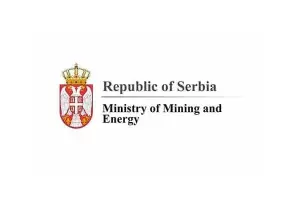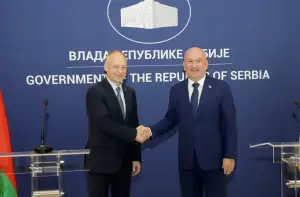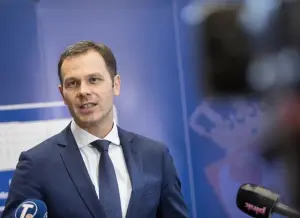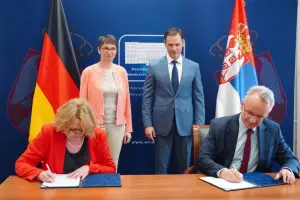- Serbia
Get to know Serbia
- Citizens
Culture and science
Health services
Pension and disability insurance
- Business
Employment
Economy
- Media
- Government
- Contact
Keep in touch
Contact form
Back
Keepin touch
Whether you have a question, comment, suggestion or any problem in the purview of the government, send us your message and we will try to respond as soon as possible. If your problem is not in our purview, we will forward your message to the relevant institution.
Q:
A:
Serbia records economic growth, IMF Mission says
Belgrade,
27 June 2006
Head of International Monetary Fund (IMF) Mission in Serbia Peter Doyle stated today that this institution said that there is high economic growth in Serbia, but that unemployment and deficits in international current payments are problems that should be resolved in the period to come and that current expenditures need to be reduced.
In a press conference today held after two-week consultations with representatives of the Serbian government and the National Bank of Serbia (NBS) on economic trends, Doyle said that the result of successful five-year economic reform is a GDP increase of 40% and employment in the private sector.
He hailed measures taken in the areas of economic and monetary policy to cut inflation and added that the NBS should continue with restrictive measures. He also said there is further room to influence the reduction of prices.
One of the measures for tackling inflation would be prevention of monopoly and introduction of competition, which is why he recommended the abolition of the Decree banning the import of oil derivatives. Doyle also recommended that customs fees are introduced for oil products, which would be decreased with time.
A lower inflation rate will stimulate investment as it is a crucial signal for investors, he said adding that Serbia’s budget for this and next year should remain restrictive.
Additional public investment is necessary for Serbia, but the amount should be in line with the budget, Doyle said and stressed that the 20% unemployment rate in Serbia is growing, which is why it is necessary to accelerate the restructuring of big socially owned and state companies that generate losses.
He said that Serbia should speed up structural reform in order to increase productivity and export growth.
He hailed measures taken in the areas of economic and monetary policy to cut inflation and added that the NBS should continue with restrictive measures. He also said there is further room to influence the reduction of prices.
One of the measures for tackling inflation would be prevention of monopoly and introduction of competition, which is why he recommended the abolition of the Decree banning the import of oil derivatives. Doyle also recommended that customs fees are introduced for oil products, which would be decreased with time.
A lower inflation rate will stimulate investment as it is a crucial signal for investors, he said adding that Serbia’s budget for this and next year should remain restrictive.
Additional public investment is necessary for Serbia, but the amount should be in line with the budget, Doyle said and stressed that the 20% unemployment rate in Serbia is growing, which is why it is necessary to accelerate the restructuring of big socially owned and state companies that generate losses.
He said that Serbia should speed up structural reform in order to increase productivity and export growth.
-
 Belgrade, 21 July 2025
Belgrade, 21 July 2025Construction of oil pipeline with Hungary to begin early next year
-
 Belgrade/Athens, 17 July 2025
Belgrade/Athens, 17 July 2025Serbia continues to align with EU in field of energy
-
 Kostolac, 14 July 2025
Kostolac, 14 July 2025First solar power plant Petka in Kostolac put into trial operation
-
 Belgrade, 11 July 2025
Belgrade, 11 July 2025Potential for improving cooperation with Belarus in many areas
-
 Požega, 5 July 2025
Požega, 5 July 2025Section of Pakovraće - Požega highway officially opened
-
 Belgrade, 2 July 2025
Belgrade, 2 July 2025Technical specifications defined for Serbia-Hungary oil pipeline
-
 Belgrade, 30 June 2025
Belgrade, 30 June 2025IMF confirms Serbia successfully implementing all agreed reforms
-
 Belgrade, 27 June 2025
Belgrade, 27 June 2025Double Taxation Avoidance Agreement with Germany signed
-
 Kostolac, 25 June 2025
Kostolac, 25 June 2025Construction of Kostolac wind farm nearing completion
-
 Belgrade, 24 June 2025
Belgrade, 24 June 2025Government supports request for new postponement of sanctions against NIS
